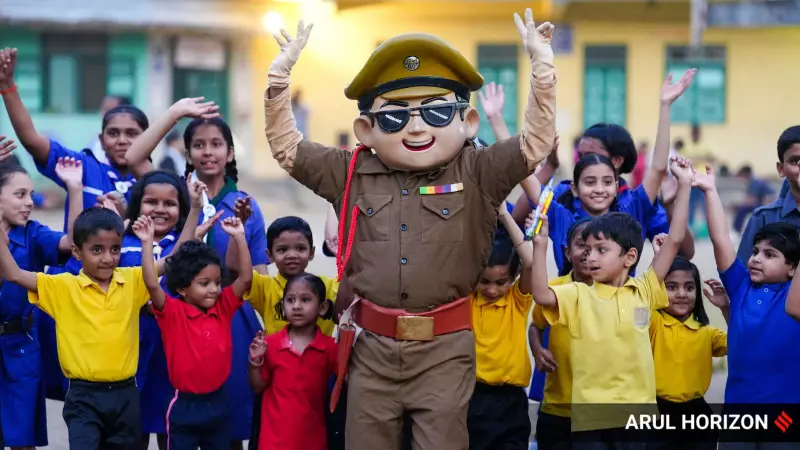
In an era where digital devices seem to dominate every aspect of childhood, a groundbreaking survey conducted in Pune has uncovered a heartening truth. On the eve of Children's Day, The Indian Express decided to ask children themselves what they would willingly exchange their precious screen time for, and their answers were both surprising and refreshingly honest.
The Digital Dilemma in Modern Childhood
Every contemporary parent echoes the same concern: screens have consumed childhood entirely. The landscape of youth has transformed dramatically, with outdoor play becoming a rare weekend occurrence and reading being supplanted by endless scrolling. The familiar plea for 'five more minutes' has become the most repeated phrase in modern households across India.
Evenings that were once filled with the sounds of cousins, neighbours, and outdoor games have transformed into hours spent isolated with tablets and gaming consoles. Children now primarily meet friends in virtual spaces, laughter happens through chat messages, and even boredom requires a digital password. The childhood that was once rich with scraped knees and real-world adventures is now predominantly framed within the confines of a screen.
Children's Surprising Alternatives to Screen Time
When asked what they would happily trade their screen time for, the children's responses revealed a deep-seated craving for genuine human connection and physical activity.
Marissa Abraham, aged 9, who typically watches television for about an hour on school days and up to three hours during holidays, expressed her desire to sleep in until 11 AM, hang out with friends, and work on her music band. 'We're even writing our own song, 'Water Droplets'!' she excitedly shared. 'One day, we want to be as famous as Huntrix.'
Ahaana Rathod, 12, whose screen time exceeds 30 minutes on school days due to academic and extracurricular commitments, revealed she would prefer cooking new recipes in the kitchen, playing board games with friends, or spending quality time with her piano and journal. 'It's not that I don't want to do these things,' she explained, 'I just wish I had more time for them.'
For Anaya Oswal, 11, who dedicates one to two hours daily to screens, the ideal alternative would be cycling with friends, though she noted the practical challenge that 'everyone is not always available.'
The Universal Craving for Real Connection
Vihaan Rathod, 14, with approximately one to two hours of daily screen time (increasing on weekends), made it clear that when friends call for football or cricket, 'the phone can wait!' He expressed his preference for real goals, genuine laughter, and authentic games on the turf, while acknowledging the logistical difficulty that 'all friends do not come to play every day.'
Amaira Gundesha, 9, whose TV or mobile usage rarely exceeds 20 minutes daily, stated she would happily trade even that minimal screen time for playing with friends, cousins, and family. She particularly cherishes moments 'where everyone forgets their routine and just plays together.'
Arihaan Kankariya, 13, who typically spends around two hours on screens during weekdays, emphasized that weekends are reserved for outdoor activities. He revealed he would gladly exchange his gadgets if his parents would accompany him for swimming every day.
Leanna Munigety, 13, acknowledged using her phone or watching shows to relax after long school hours. However, given the choice, she would prefer spending that time with her best friend - shopping, chatting, and sharing laughter.
A Wake-Up Call for Modern Parenting
These candid responses from Pune's children serve as a powerful reminder that beneath the digital surface, young hearts still yearn for authentic human interaction, physical play, and the simple joy of being present in the real world. The survey, conducted around Children's Day celebrations that included a fair organised by Bharat Scouts and Guides featuring the Singham mascot, highlights a crucial insight for parents and educators.
The children's answers collectively demonstrate that while screens have become an integral part of contemporary childhood, the fundamental desires for connection, creativity, and physical activity remain strong. The challenge lies not in eliminating technology entirely, but in creating more opportunities for the real-world experiences that children genuinely crave.
As digital technology continues to evolve, this survey provides valuable perspective for families seeking balance in an increasingly connected world, reminding us that sometimes the best entertainment doesn't come from a screen, but from the people and activities right in front of us.





